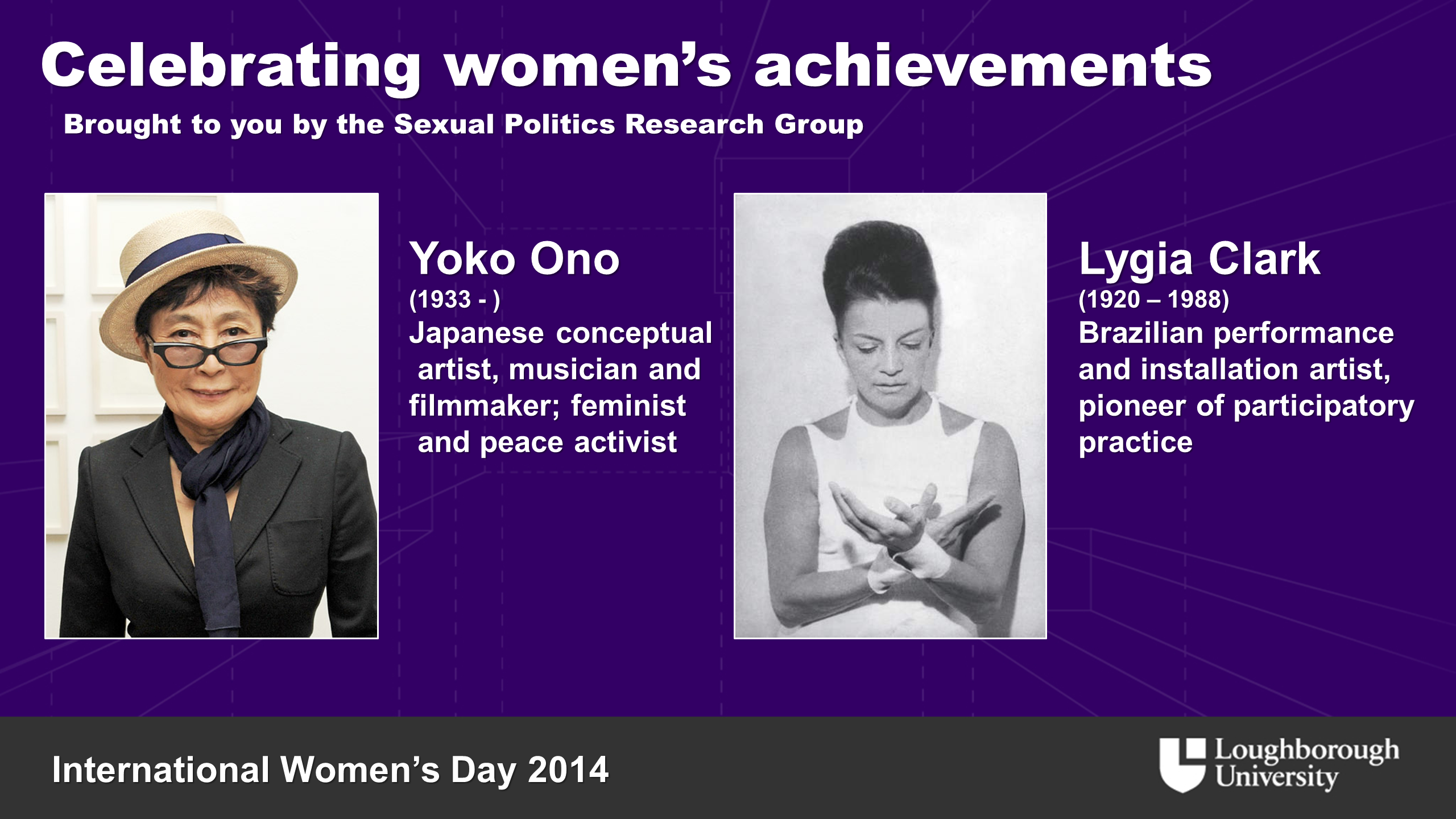International Women's Day celebrations

 In celebration of International Women’s Day, which takes place on March 8th each year, the Sexual Politics Research Group, led by a number of colleagues based in School of the Arts, is hosting a screen event across campus. This is part of a series of celebrations taking place this Friday, 7 March 2014.
In celebration of International Women’s Day, which takes place on March 8th each year, the Sexual Politics Research Group, led by a number of colleagues based in School of the Arts, is hosting a screen event across campus. This is part of a series of celebrations taking place this Friday, 7 March 2014.
Throughout the day, the IT information screens will honour women’s achievements past and present, local and global, in the arts, humanities, social sciences, engineering, science and technology. Many of the names used on the IT information screens were generated by enthusiastic submissions and the organisers hope that people enjoy seeing their choices on screen this Friday. The organisers intend that this will be the first manifestation of an annual event here at Loughborough University and they will keep us all posted about further developments in future.
A copy of the associated PPT slides to be used is also available via Learn, and colleagues are encouraged to use them in their own lectures, etc., this coming week, i.e. as a prelude to seeing the slides on screens in the ‘public’ spaces across campus this Friday. We are assured that there are no copyright issues and that colleagues are very welcome to use them as a teaching tool/discussion starter. A range of disciplines, times and places, as well as a healthy mix of LU women are included, and the show runs for around 7 minutes in total – i.e. perfect for the ‘filing in’ and ‘filing out’ of lecture theatres!
Also this Friday, 7 March 2014, RADAR is hosting a symposium entitled Making Something from Nothing, organised by Assunta Ruocco, a PhD candidate in the School of the Arts: go to http://www.arts.lboro.ac.uk/radar/project/questions_of_value/symposium/ for more details. The title is borrowed from Lucy Lippard’s famous text ‘Making Something from Nothing’ (1978), in which Lippard was attempting an articulation of the contradictions arising with more women emerging in the art scene, between their artistic labour and the reproductive labour they performed in the home, connecting their artistic activities to traditional making activities not part of high-art or culture.